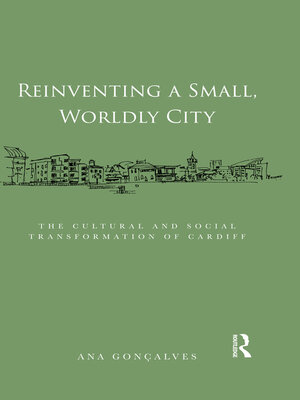Reinventing a Small, Worldly City
ebook ∣ The Cultural and Social Transformation of Cardiff
By Ana Gonçalves

Sign up to save your library
With an OverDrive account, you can save your favorite libraries for at-a-glance information about availability. Find out more about OverDrive accounts.
Find this title in Libby, the library reading app by OverDrive.



Search for a digital library with this title
Title found at these libraries:
| Library Name | Distance |
|---|---|
| Loading... |
Focusing on Cardiff, the capital city of Wales in the UK, this book reflects on a contemporary small European city – its development, characteristics, and present struggles. Following a century in which it was dubbed the world's 'coaltropolis', the decline in demand for coal meant that Cardiff endured an acute process of de-industrialisation. In seeking to address this and the related high levels of unemployment, it has experienced a process of cultural and social reinvention since the 1980s, and more significantly after Wales turned into a devolved nation in the late 1990s. Cardiff's development from a small port into a capital city is examined and special attention is paid to the city's cultural and social transformation in recent decades that has relied on the expansion of specific cultural clusters and tourism, which have been decisive for the transformation of its cultural identity and in shaping the city's individual and collective memories and identities.
Cardiff epitomises a quintessential case of urban reinvention, cultural regeneration, and social transformation, lying between two apparently contradictory paradigms: the need to respond to global demands and the effort to maintain its cultural distinctiveness and Welsh roots. Therefore, it sets the scene for a wider reflection on small cities, especially in the European setting, and what generally characterises these cities: their liveability, cultural creativity and community empowerment, as well as the fact that they facilitate mobility and social interaction. These worldly cities, the book contends, present interesting opportunities and challenges at the urban, economic, social and cultural levels that rely on more human-scale, people-based approaches to cities, thus defying existing urban hierarchies and categorisations.







